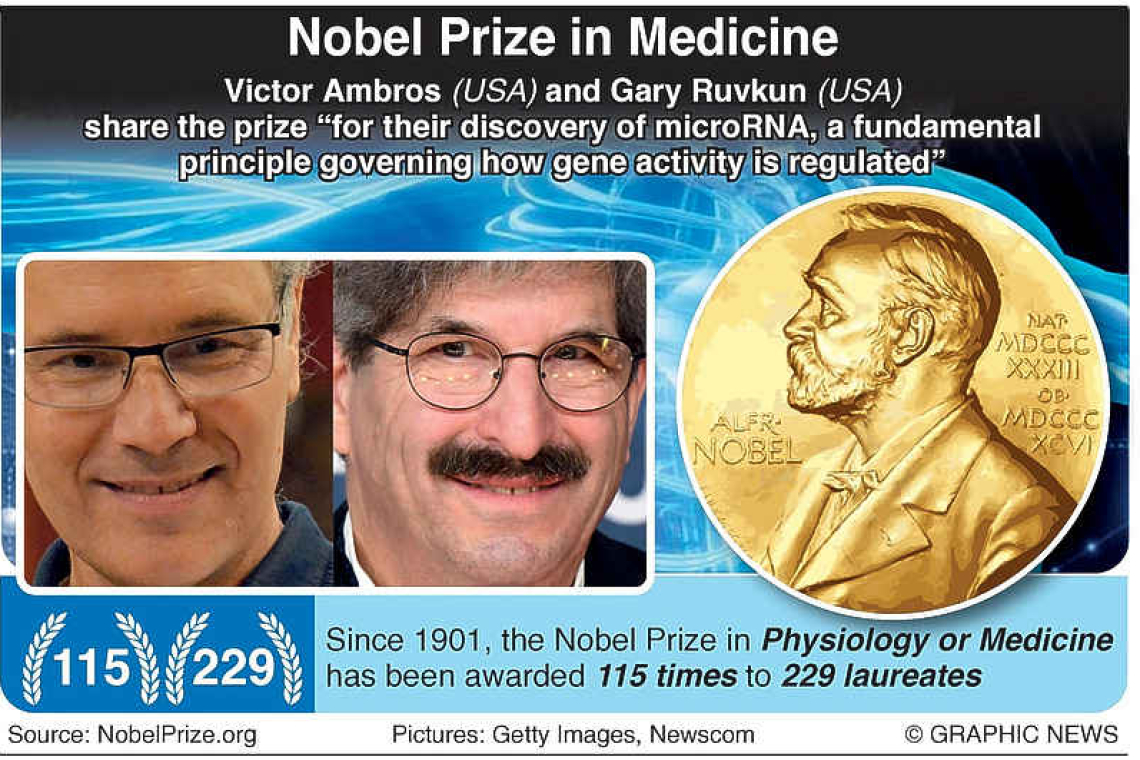STOCKHOLM--U.S. scientists Victor Ambros and Gary Ruvkun won the 2024 Nobel Prize in Medicine on Monday for the discovery of microRNA and its crucial role in how multicellular organisms grow and live. Their work helped explain how cells specialise and develop into different types, such as muscle and nerve cells, even though all the cells in an individual contain the same set of genes and instructions for growing and staying alive.
"The Nobel's, you know, there's a word we use for Major League Baseball, it's called 'The Show'. Which means it's not any show, it's THE show," Ruvkun told Reuters, describing what it was like being thrust into the global spotlight. He joked that collaborating with Ambros and receiving previous awards meant they had been "joined at the hip for quite a while". "That's been great. He's a wonderful guy," Ruvkun added by phone. Ambros seconded by saying he was happy to share the award with "a great friend". The Nobel Assembly, the award-giving body, said in a statement that the laureates discovered a new class of tiny RNA molecules, which play a crucial role in gene regulation.
"Their groundbreaking discovery revealed a completely new principle of gene regulation that turned out to be essential for multicellular organisms, including humans," the assembly said. Also speaking to Reuters, Ambros described microRNA as a "communication network amongst genes that enables the cells in our bodies to generate all kinds of different complex structures and functions." Ambros is a professor at the University of Massachusetts Medical School, while Ruvkun is a professor at Harvard Medical School and also affiliated with Massachusetts General Hospital in Boston. In the late 1980s, Ambros and Ruvkun undertook postdoctorate studies in the laboratory of Robert Horvitz, himself a Nobel Prize winner in 2002, studying a 1 mm long roundworm. Their discoveries on how certain microRNAs in the roundworm govern growth of organs and tissue was initially dismissed as specific to the species.
More work published by Ruvkun's research group in 2000, however, showed that all animal life had relied on the mechanism for more than 500 million years. MicroRNA comes into play when single-strand messenger RNA - the subject of last year's Nobel Prize in medicine - is decoded and translated into making proteins, the building blocks of all human and animal life. Messenger RNA, or mRNA, in turn, emerges from the universal blueprint in every cell nucleus, the double-helix DNA. Professor Gunilla Karlsson Hedestam of the Karolinska Institute said that, while the 2023 prize was linked to the specific use in COVID-19 vaccines, this year's award was for a leap in basic understanding with many potential future applications. Janosch Heller, Assistant Professor in Biomedical Sciences at Dublin City University, who was not involved in selecting the winners, said that the findings had boosted the understanding of diseases such as epilepsy.







